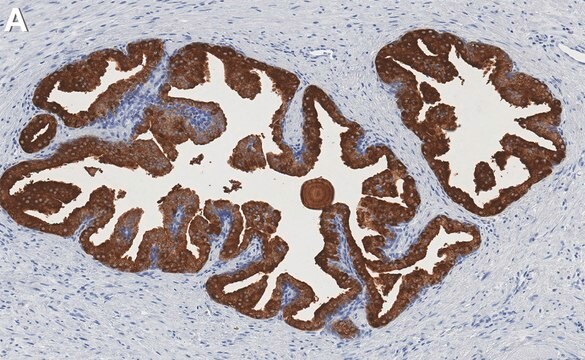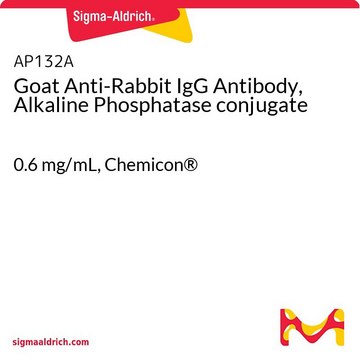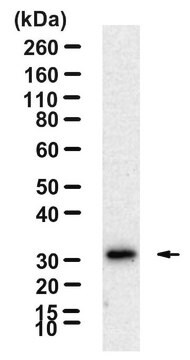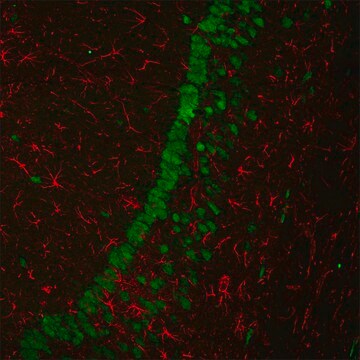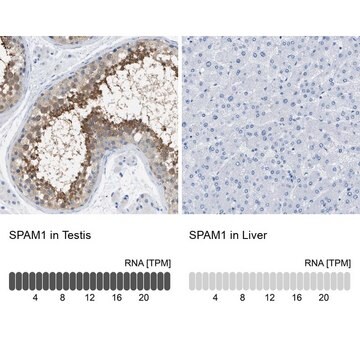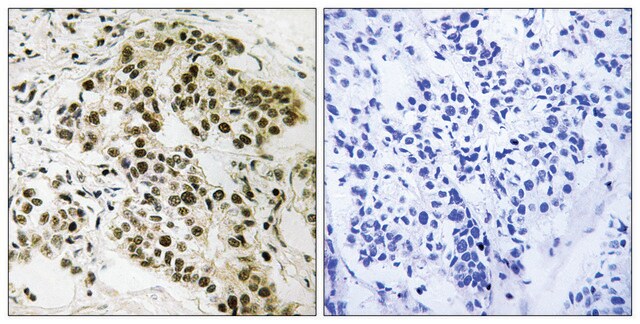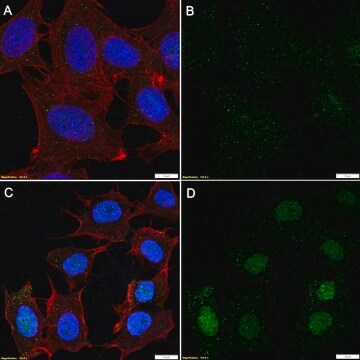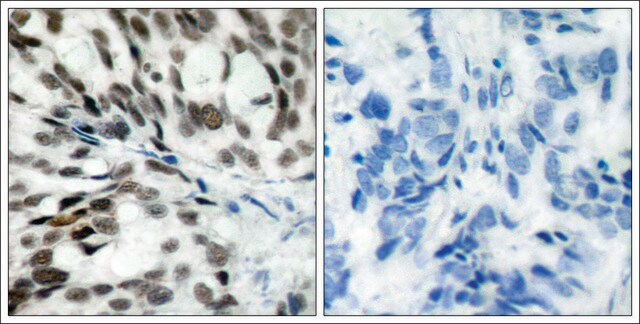ZRB2390
Anti-PHF20 Antibody, clone 1N6 ZooMAb® Rabbit Monoclonal

recombinant, expressed in HEK 293 cells
Sinônimo(s):
Glioma-expressed antigen 2, Hepatocellular carcinoma-associated antigen 58, Novel zinc finger protein, PHD finger protein 20, Transcription factor TZP
About This Item
Produtos recomendados
fonte biológica
rabbit
Nível de qualidade
recombinante
expressed in HEK 293 cells
conjugado
unconjugated
forma do anticorpo
purified antibody
tipo de produto de anticorpo
primary antibodies
clone
1N6, recombinant monoclonal
descrição
1N6 Clone
linha de produto
ZooMAb® learn more
Formulário
lyophilized
peso molecular
calculated mol wt 115.39 kDa
observed mol wt ~115 kDa
purificado por
using Protein A
reatividade de espécies
rat, human
embalagem
antibody small pack of 25 μL
características do produto alternativo mais ecológico
Waste Prevention
Designing Safer Chemicals
Design for Energy Efficiency
Learn more about the Principles of Green Chemistry.
validação aprimorada
recombinant expression
Learn more about Antibody Enhanced Validation
técnica(s)
affinity binding assay: suitable
immunocytochemistry: suitable
immunohistochemistry: suitable
western blot: suitable
Isotipo
IgG
sequência de epítopo
C-terminal half
nº de adesão de ID de proteína
nº de adesão UniProt
categoria alternativa mais ecológica
Condições de expedição
ambient
temperatura de armazenamento
2-8°C
Informações sobre genes
human ... PHF20(51230)
Descrição geral
Especificidade
Imunogênio
Aplicação
Evaluated by Western Blotting in HCT116 cell lysate.
Western Blotting Analysis: A 1:10,000 dilution of this antibody detected PHF20 in HCT116 cell lysate.
Tested Applications
Western Blotting Analysis: A 1:1,000 dilution from a representative lot detected PHF20 in Ntera-2 and L6 cell lysates.
Affinity Binding Assay: A representative lot of this antibody bound PHF20 peptide with a KD of 2.5 x 10-7 in an affinity binding assay.
Immunohistochemistry (Paraffin) Analysis: A 1:100 dilution from a representative lot detected PHF20 in human cerebral cortex tissue sections.
Immunocytochemistry Analysis: A 1:100 dilution from a representative lot detected PHF20 in HCT116 cells.
Note: Actual optimal working dilutions must be determined by end user as specimens, and experimental conditions may vary with the end user.
Descrição-alvo
forma física
Armazenamento e estabilidade
Outras notas
Informações legais
Exoneração de responsabilidade
Não está encontrando o produto certo?
Experimente o nosso Ferramenta de seleção de produtos.
Código de classe de armazenamento
11 - Combustible Solids
Classe de risco de água (WGK)
WGK 1
Ponto de fulgor (°F)
Not applicable
Ponto de fulgor (°C)
Not applicable
Escolha uma das versões mais recentes:
Certificados de análise (COA)
It looks like we've run into a problem, but you can still download Certificates of Analysis from our Documentos section.
Se precisar de ajuda, entre em contato Atendimento ao cliente
Já possui este produto?
Encontre a documentação dos produtos que você adquiriu recentemente na biblioteca de documentos.
Nossa equipe de cientistas tem experiência em todas as áreas de pesquisa, incluindo Life Sciences, ciência de materiais, síntese química, cromatografia, química analítica e muitas outras.
Entre em contato com a assistência técnica